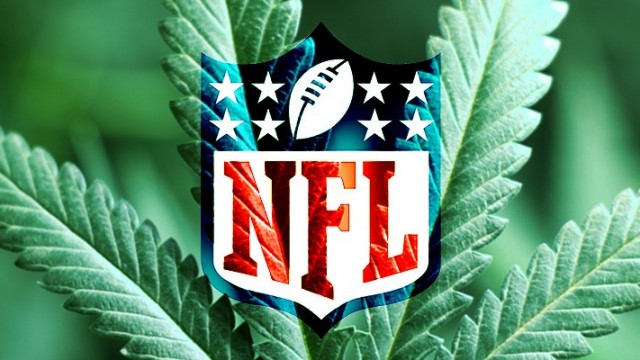You are here
Home 🌿 Medical Cannabis News 🌿 The Need for Non-Opiate Painkillers in the NFL Pushes Cannabis into the Spotlight 🌿The Need for Non-Opiate Painkillers in the NFL Pushes Cannabis into the Spotlight

Every week, NFL players experience a wide array of injuries that cause them to suffer severe pain. Players equate the impact of play on the field to getting into multiple car accidents in one afternoon. Currently, the most commonly prescribed painkillers are opiate based. Clearly, opiates are addictive and have led to a nationwide epidemic. Over the years, I’ve had players become addicted to opiate based painkillers. Seeking to avoid that tragedy makes it necessary to look for non-addictive alternatives.
There has been longstanding debate on whether marijuana should be allowed as a form of pain relief in the NFL. Historically, the league has suspended players for their recreational and medicinal use of the drug. With it now legal in 28 states for medical use and legal in seven states for recreational use, the push for permitting use of marijuana as a pain reliever is getting stronger.
Per league and players’ union sources, the most commonly used marijuana related substance among players is Cannabidiol (“CBD”). CBD is a compound that is extracted from the marijuana plant. CBD has so little of a psychoactive effect that federal law does not qualify it as marijuana. CBD oil has been used to treat many diseases; from acne, to diabetes, post-traumatic stress disorder, schizophrenia, and insomnia.
However, CBD is currently banned under the NFL’s substance abuse policy and any player that tests positive for CBD on two or more occasions is subject to suspension. The same is the case in Major League Baseball and the National Basketball Association. All three leagues suspend players for multiple positive CBD tests. The MLB has the strictest policy of the three major sports with a lifetime ban after the fourth positive test.
The argument against marijuana use by professional athletes has primarily centered around preventing the lifestyle that tends to follow smoking “weed” (“dope,” “grass,” or whatever you care to call it), risk of addiction; and, of course, the concern that marijuana is a gateway drug to other more addictive drugs. In recent years, thoughts that marijuana is less addictive than alcohol, which is obviously legal in all 50 states and prevalent in professional sports, and that CBD is an alternate form of treating chronic pain have countered the historical stance on marijuana.
Current NFL player Seantrel Henderson has been one of the proponents for CBD use among professional athletes. After being diagnosed with Crohn’s disease, which involves inflammation of the bowel, Henderson says that he began using CBD to treat the pain that he suffered from the disease. In a series of interviews, he noted that doctors recommended CBD because painkillers would have been harmful to his intestines and recovery. Following doctors’ orders, he started using CBD to treat the disease and was suspended twice by the NFL. Henderson’s suspension for using a doctor proscribed medicine to treat a disease has been a core component of the argument of CBD advocates for modification of the NFL’s drug policy.
420 Intel is Your Source for Marijuana News
420 Intel Canada is your leading news source for the Canadian cannabis industry. Get the latest updates on Canadian cannabis stocks and developments on how Canada continues to be a major player in the worldwide recreational and medical cannabis industry.
420 Intel Canada is the Canadian Industry news outlet that will keep you updated on how these Canadian developments in recreational and medical marijuana will impact the country and the world. Our commitment is to bring you the most important cannabis news stories from across Canada every day of the week.
Marijuana industry news is a constant endeavor with new developments each day. For marijuana news across the True North, 420 Intel Canada promises to bring you quality, Canadian, cannabis industry news.
You can get 420 Intel news delivered directly to your inbox by signing up for our daily marijuana news, ensuring you’re always kept up to date on the ever-changing cannabis industry. To stay even better informed about marijuana legalization news follow us on Twitter, Facebook and LinkedIn.




